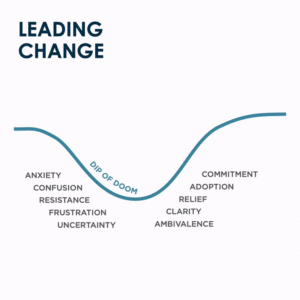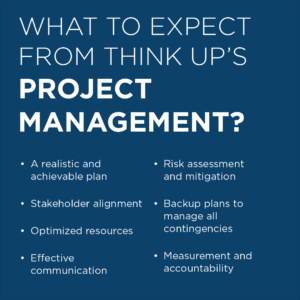As a leader, how do you react to change? Are you a tree, firmly rooted and determined to brace for whatever comes? Or, are you a river, more fluid, able to adjust course or carve a new path when necessary? Adaptable leaders, those who can anticipate and even embrace change, are often better equipped to carry their organizations through internal and external change, such as a merger, a shifting marketplace—or our current situation, a pandemic. With a little practice and experience, the following are a few ways leaders can strengthen their adaptability.
Ask “What if?”
Think back to the last time you packed for a trip. Maybe you asked yourself, what if it rains? What if I spill something on my shirt? What if we go somewhere nice for dinner? You essentially play through a series of possible scenarios so you can ensure you’re prepared to adapt to changing circumstances. This same activity applies to business.
“What if?” questions are a great tool for practicing mental dexterity and priming our minds for change. Adaptable leaders have a flexible way of thinking and approach situations with an open mind, examining from all angles. When we ask, “what if?” we’re allowing ourselves to explore possible scenarios and outcomes and organize/reorganize information to achieve a goal.
Learn to Unlearn
Knowledge isn’t permanent. Adaptable leaders recognize this and aren’t afraid to let go of what they know in exchange for new information. Consider Dustin Sandlin, an engineer and host of the YouTube series “Smarter Every Day.” He was challenged to ride a backwards bike (when the handlebars are turned to the right, the bike goes left, and vice versa). To achieve this, Dustin thought all he had to do was apply his bike riding knowledge in reverse. Wrong. He had to completely unlearn the nuances of balance and physics that make riding a normal bike possible so he could adapt to the unique challenges posed by the backwards bike.
Leaders can be guilty of holding on to thought patterns and processes they consider immutable. For example, top performers make great leaders, or short-term results are always good for long-term success. Unlearners seek to challenge what they know. One way we can do this is by trying to prove ourselves wrong. If we believe top performers make great leaders, what evidence exists that suggests otherwise? Another way to unlearn is by collecting information from a wider variety of sources. By integrating a multitude of perspectives into our thinking, we can more quickly adjust our thought patterns and move from what we think we know (short-term results are always good for long-term success) to new possibilities (maybe some short-term results should be sacrificed).
Stay Curious
In the year 2000, Netflix CEO Reed Hastings approached John Antioco, the CEO of Blockbuster, with a proposal to manage Blockbuster’s struggling online sales. Antioco, who felt secure that his millions of in-store customers would carry his company forward in perpetuity, declined Hastings’s proposal. The lesson: comfort and complacency can hinder adaptability. When leaders become too entrenched in their current state, it becomes challenging to see what’s coming next.
Leaders can combat complacency through curiosity. Actively seeking out information, insights, and differing perspectives and experiences better equips us to adapt to future possibilities because we can then use those inputs to guide our “what if” thinking or help us unlearn and let go of dated knowledge. Steve Jobs, who was arguably a genius in his own right, understood that the best way to move Apple forward was to hire thought leaders and experts at every level and embrace their thinking. His curiosity and desire to explore opportunities by mining his team for insights enabled Apple to successfully evolve from a computer company to the consumer electronics giant it is today.
Adaptability is critical for long-term leadership success. It is both a shield and sword, allowing organizations to withstand and adjust to change or carve out new ways forward. By playing through possible scenarios, challenging what we know, and valuing curiosity, leaders can better prepare themselves for the next big change coming their way.
RESOURCES:



